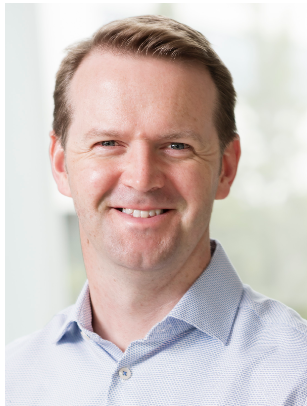
Dr. Eoin Cummins, originally from Dublin, began his academic journey at University College Dublin on a sports scholarship. He graduated with a BSc in Pharmacology in 2002 and went on to earn a PhD in Molecular Medicine from UCD in 2007. He joined the UCD School of Medicine as an Assistant Professor in Physiology and was promoted to Associate Professor in 2022.
Dr. Cummins' research explores the impact of hypoxia (low oxygen levels) and hypercapnia (high carbon dioxide levels) on inflammatory signalling, particularly in lung disease. His work at the Conway Institute, UCD, explores how these gases influence complex cellular responses and signalling pathways.
Current Research Challenges
His research focuses on the physiological roles of carbon dioxide (CO2) in cellular responses, and its implications for diseases such as inflammatory bowel disease (IBD) and chronic obstructive pulmonary disease (COPD). Initially, his team believed they were studying cellular responses to oxygen in controlled environments, but they discovered that the cells were actually responding to CO2 levels. This unexpected finding led to a shift in focus towards CO2's role in cellular physiology and disease.
Dr. Cummins identified a knowledge gap in how cells respond to CO2 compared to the well-studied oxygen response. His research has explored this theme over the past 12 to 13 years, particularly in the context of inflammation. COPD patients, who struggle to expel CO2, experience elevated CO2 levels, which affects their inflammation and immune response, making them more susceptible to serious infections.A significant challenge in Dr. Cummins' research is understanding the intricate balance between inflammation and immune responses. Actions that reduce inflammation might suppress immunity and vice versa depending on the context, acting like a double-edged sword. This complexity requires further investigation to draw definitive conclusions.
Dr. Cummins' work employs basic biomedical methods, mainly using cell models and occasionally animal models, with a goal of transitioning to more translational medicine. His earlier research identified pathways regulated by hypoxia and inflammation, attracting pharmaceutical interest and leading to clinical trials for drugs targeting these pathways. These drugs, initially thought useful for oxygen-related diseases like chronic kidney disease (CKD), may also have applications in inflammatory contexts.
Currently, Dr. Cummins' research centres on immunometabolism, examining how high CO2 levels alter immune cell metabolism and function. Preliminary data suggest that high CO2 levels change immune cells' metabolism, making them less inflammatory. Understanding these changes and their implications is a primary research goal.Dr. Cummins is currently working mainly on monocytes and macrophages which are immune cells associated with inflammation. He is currently seeking funding to develop beyond these models to focus on other immune cells and tissues such as skeletal muscle and adipose tissue, with potential applications in conditions like sleep apnoea.
Despite its significant translational potential, the fundamental biology of CO2’s impact on immune function remains underdeveloped. Dr. Cummins is dedicated to expanding this understanding, recognising its critical importance and aiming to unlock its translational potential for health and disease.
The Researcher
Dr. Eoin Cummins is the Chair of Artificial Intelligence (AI) in Teaching and Learning for the Biomedical Section of the School of Medicine at University College Dublin. He recently completed a Professional Diploma in Creativity and Innovation for Education, sparking his interest in AI. In 2018, Dr. Cummins received the Physiology Teacher of the Year Award, an accolade bestowed by the Physiology Degree Class for his exceptional teaching. He also received a College Level Teaching and Learning Award in 2022.
Dr.Cummins has a variety of interests outside his research. He enjoys coaching children's sports, spending quality time with his family, and staying active through participation in social Gaelic Athletic Association (GAA) activities.
Future Research Aspirations
Dr. Cummins aims to pursue challenging and fulfilling research in the coming years, with a focus on expanding his current work to achieve critical mass and greater impact. He emphasises the need for increased investment to overcome current limitations in scale and resources, which he believes will enable significant advancements. His future research will focus on expanding his work on the physiological roles of carbon dioxide (CO2) and its broader implications. Passionate and optimistic, he mentors two lab students, aiming to support and encourage the next generation of researchers.
Beyond UCD, he collaborates internationally, including overseeing a student's project at Simon Fraser University in Vancouver. Leading efforts to organise a Royal Society-funded meeting in Manchester, he aims to unite global experts in CO2 biology to discuss CO2, sensing, carbon capture, sustainability, and crop efficiency, underscoring the significance and societal impact of CO2 research. His studies delve into how CO2 influences cellular behaviour, with implications for marine ecosystems grappling with fluctuating CO2 and pH levels, contributing to broader environmental conversations around climate change.
Beyond his current focus on immunometabolism, he is intrigued by exploring tissue microenvironments, including interactions involving oxygen levels, carbon dioxide levels, blood flow dynamics, pH regulation, and mechanical forces. Dr. Cummins sees these areas as largely unexplored with wide-ranging applications in physiology and pathology, such as understanding tumour microenvironments.
Currently, he is involved in a School of Medicine funded seed funding grant with Professor Ronan Cahill and Dr. Stephen Thorpe to investigate the tumour microenvironment with collaborators from medicine and bioengineering. He values collaboration with individuals from diverse backgrounds and complementary interests, recognising the potential for innovative breakthroughs through such collaborative approaches.
Related Links
(opens in a new window)UCD Profile
(opens in a new window)LinkedIn
(opens in a new window)Google Scholar